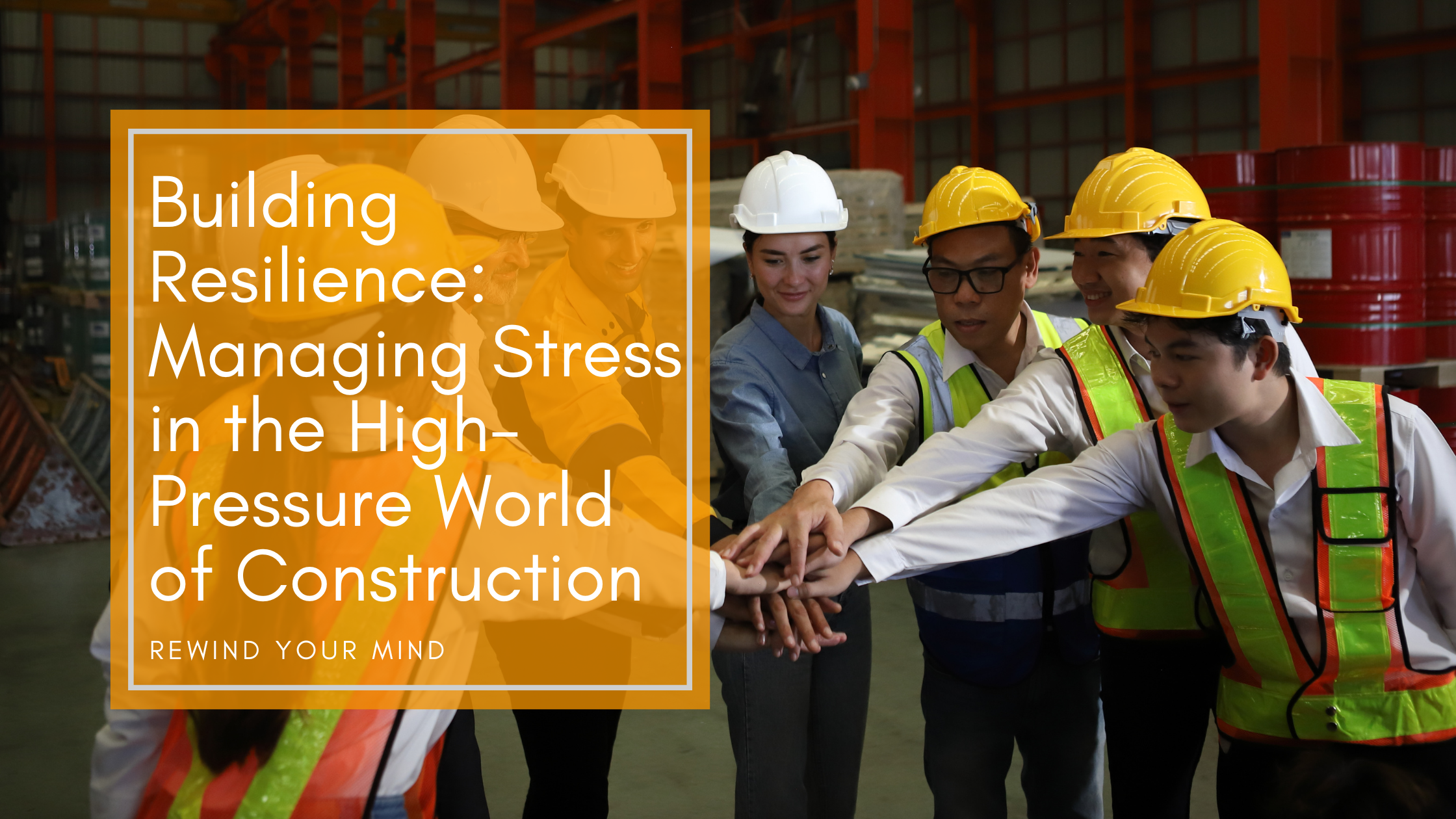
The construction industry is a cornerstone of economic growth and development, yet it’s also one of the most stressful fields to work in. With tight deadlines, high stakes, and an unyielding focus on safety, stress can quickly become a silent saboteur of productivity and well-being. For CEOs, HR managers, project managers, and health and safety teams, managing stress is not just an ethical obligation but a strategic necessity to maintain a resilient and effective workforce.
In this guide, we will explore the impact of stress on the construction industry, identify its primary causes, and provide actionable strategies that business leaders can implement to ease the burden and foster a more resilient workplace.
The Impact of Stress on the Workforce
1. Increased Absenteeism and Presenteeism
Stress takes a significant toll on employees, often leading to absenteeism—where workers take time off due to stress-related health issues—and presenteeism, where employees are physically present but mentally disengaged. According to the Health and Safety Executive (HSE), work-related stress accounts for over half of all working days lost annually in the UK.
2. Safety Risks and Mistakes On-Site
Stress can impair focus and decision-making abilities, increasing the likelihood of accidents and errors. In a high-risk industry like construction, even a momentary lapse in concentration can result in catastrophic outcomes, impacting both the individual and the company’s bottom line.
3. Turnover and Talent Retention
A stressed workforce is more likely to experience burnout, leading to higher turnover rates. Recruiting and training new staff is both costly and time-consuming, making stress management a critical factor in retaining top talent.
Top Stressors in Construction
Understanding the root causes of stress is the first step in mitigating it. Here are the top contributors:
1. Tight Deadlines
Construction projects are often bound by immovable deadlines. The pressure to deliver on time can lead to long hours, rushed work, and mounting stress.
2. Long Hours
The physical and mental demands of extended working hours can lead to fatigue, reducing productivity and increasing the risk of errors.
3. Job Security
Fluctuating project demands and economic uncertainties can create anxiety about job stability, especially for contractors and temporary workers.
4. Poor Communication
Miscommunication or lack of clarity regarding roles, expectations, and project goals can exacerbate stress, leading to frustration and disengagement.
Practical Strategies to Manage Stress
As leaders, you hold the power to influence workplace culture and implement strategies that not only reduce stress but also build resilience among your teams. Here are actionable steps to take:
1. Foster Open Communication
- Encourage Regular Check-Ins: Create a culture where managers check in with their teams regularly. A simple “How are you doing?” can open the door to meaningful conversations about stress and workload.
- Anonymous Feedback Channels: Implement tools for anonymous feedback so employees can voice concerns without fear of judgment.
- Promote Transparency: Clearly communicate project expectations, changes, and timelines to reduce uncertainty and align team efforts.
2. Implement Mindfulness Practices
- Short Breathing Exercises: Introduce simple breathing techniques that employees can use during breaks to reduce stress. For instance, the 4-7-8 method (inhale for 4 seconds, hold for 7 seconds, exhale for 8 seconds) can calm the mind in minutes.
- Mindfulness Apps: Provide access to mindfulness or meditation apps like Headspace or Calm as part of your employee benefits package.
- Quiet Zones: Designate quiet areas on-site or in offices where employees can decompress during the day.
3. Organise Well-Being Initiatives
- 10 at 10 Sessions: Dedicate 10 minutes at 10 a.m. for team-wide stretches, mindfulness exercises, or group check-ins.
- Lunch and Learn Sessions: Host short workshops on stress management, healthy habits, or mental health awareness during lunch breaks.
- Physical Activity Challenges: Encourage friendly competition through step challenges or fitness goals, promoting both physical and mental health.
4. Provide Training and Resources
- Mental Health First Aid: Train managers and select employees to become mental health first aiders who can recognise stress and provide immediate support.
- Access to Counseling: Rewind Your Mind offers 1-2-1 in-depth Mental Health Support sessions. These go much deeper than your normal EAP programme. Get in touch to find out more.
- Educational Materials: Distribute easy-to-digest guides or host webinars on stress management tailored to the construction industry.
5. Recognise and Reward Efforts
- Celebrate Achievements: Publicly acknowledge milestones, big or small, to boost morale and show appreciation.
- Flexible Rewards: Offer incentives like an early finish on Fridays, gift cards, or additional leave days to reward hard work and commitment.
6. Create a Supportive Environment
- Encourage Breaks: Discourage skipping breaks and promote a healthy work-life balance.
- Improve Facilities: Invest in comfortable break areas with amenities like ergonomic seating, clean facilities, and access to healthy snacks.
- Team-Building Activities: Organise off-site events or team lunches to strengthen relationships and reduce stress.
Conclusion and Call to Action
Stress in the construction industry is a pressing challenge, but with the right strategies, it can be effectively managed. By fostering open communication, encouraging mindfulness, and implementing well-being initiatives, business leaders can create a resilient workforce that thrives under pressure.
Are you ready to transform the well-being of your teams? At Rewind Your Mind, we specialise in tailored solutions for the construction industry. From interactive workshops to the BuildWell planner, we provide the tools and resources you need to prioritise mental health and resilience.
Take the First Step Today: Download our free guide, “5 Bold Strategies to Revolutionise Mental Health on Construction Sites,” and discover actionable steps to build a stronger, more resilient team.
Together, let’s create a culture where stress management is not an afterthought but a fundamental part of success.

